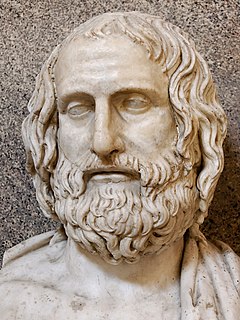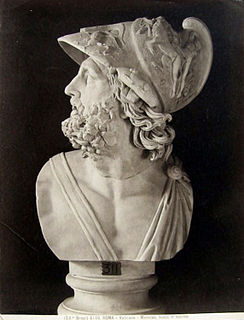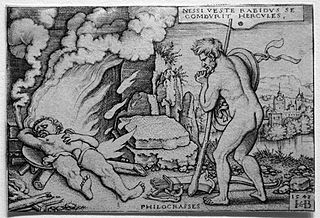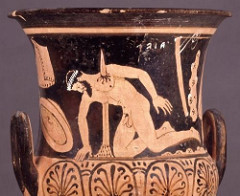
Euripides was a tragedian of classical Athens. Along with Aeschylus and Sophocles, he is one of the three ancient Greek tragedians for whom any plays have survived in full. Some ancient scholars attributed ninety-five plays to him, but the Suda says it was ninety-two at most. Of these, eighteen or nineteen have survived more or less complete. There are many fragments of most of his other plays. More of his plays have survived intact than those of Aeschylus and Sophocles together, partly because his popularity grew as theirs declined—he became, in the Hellenistic Age, a cornerstone of ancient literary education, along with Homer, Demosthenes, and Menander.

Sophocles is one of three ancient Greek tragedians whose plays have survived. His first plays were written later than, or contemporary with, those of Aeschylus; and earlier than, or contemporary with, those of Euripides. Sophocles wrote over 120 plays, but only seven have survived in a complete form: Ajax, Antigone, Women of Trachis, Oedipus Rex, Electra, Philoctetes and Oedipus at Colonus. For almost fifty years, Sophocles was the most celebrated playwright in the dramatic competitions of the city-state of Athens which took place during the religious festivals of the Lenaea and the Dionysia. He competed in thirty competitions, won twenty-four, and was never judged lower than second place. Aeschylus won thirteen competitions, and was sometimes defeated by Sophocles; Euripides won four.

In Greek mythology, Menelaus was a king of Mycenaean (pre-Dorian) Sparta. According to the Iliad, Menelaus was a central figure in the Trojan War, leading the Spartan contingent of the Greek army, under his elder brother Agamemnon, king of Mycenae. Prominent in both the Iliad and Odyssey, Menelaus was also popular in Greek vase painting and Greek tragedy, the latter more as a hero of the Trojan War than as a member of the doomed House of Atreus.

In Greek mythology, Antigone is the daughter of Oedipus and either his mother Jocasta or Euryganeia. She is a sister of Polynices, Eteocles, and Ismene. The meaning of the name is, as in the case of the masculine equivalent Antigonus, "worthy of one's parents" or "in place of one's parents". She is the protagonist of the eponymous play by Sophocles.

Antigone is a tragedy by Sophocles written in or before 441 BC.

Oedipus was a mythical Greek king of Thebes. A tragic hero in Greek mythology, Oedipus accidentally fulfilled a prophecy that he would end up killing his father and marrying his mother, thereby bringing disaster to his city and family.

In Greek mythology, Phineus was a king of Salmydessus in Thrace and seer, who appears in accounts of the Argonauts' voyage. Some accounts make him a king in Paphlagonia or in Arcadia.

In Greek mythology, Helenus was a gentle and clever seer. He was also a Trojan prince as the son of King Priam and Queen Hecuba of Troy, and the twin brother of the prophetess Cassandra. He was also called Scamandrios, and was a lover of Apollo.

In Greek mythology, Jocasta, also rendered Iocaste and also known as Epicaste, was a daughter of Menoeceus, a descendant of the Spartoi Echion, and queen consort of Thebes. She was the wife of first Laius, then of their son Oedipus, and both mother and grandmother of Antigone, Eteocles, Polynices and Ismene. She was also sister of Creon and mother-in-law of Haimon.

Oedipus Rex, also known by its Greek title, Oedipus Tyrannus, or Oedipus the King, is an Athenian tragedy by Sophocles that was first performed around 429 BC. Originally, to the ancient Greeks, the title was simply Oedipus (Οἰδίπους), as it is referred to by Aristotle in the Poetics. It is thought to have been renamed Oedipus Tyrannus to distinguish it from Oedipus at Colonus, a later play by Sophocles. In antiquity, the term "tyrant" referred to a ruler with no legitimate claim to rule, but it did not necessarily have a negative connotation.

Oedipus at Colonus is the largest of the three Theban plays of the Athenian tragedian Sophocles. It was written shortly before Sophocles's death in 406 BC and produced by his grandson at the Festival of Dionysus in 401 BC.

A Greek chorus, or simply chorus, in the context of ancient Greek tragedy, comedy, satyr plays, and modern works inspired by them, is a homogeneous, non-individualised group of performers, who comment with a collective voice on the dramatic action. The chorus consisted of between 12 and 50 players, who variously danced, sang or spoke their lines in unison, and sometimes wore masks.

Electra,Elektra, or The Electra is a Greek tragedy by Sophocles. Its date is not known, but various stylistic similarities with the Philoctetes and the Oedipus at Colonus lead scholars to suppose that it was written towards the end of Sophocles' career. Jebb dates it between 420 BC and 414 BC.

Women of Trachis or The Trachiniae c. 450–425 BC, is an Athenian tragedy by Sophocles.

Sophocles' Ajax, or Aias, is a Greek tragedy written in the 5th century BCE. Ajax may be the earliest of Sophocles' seven tragedies to have survived, though it is probable that he had been composing plays for a quarter of a century already when it was first staged. It appears to belong to the same period as his Antigone, which was probably performed in 442 or 441 BCE, when he was 55 years old. The play depicts the fate of the warrior Ajax, after the events of the Iliad but before the end of the Trojan War.

Philoctetes is a play by Sophocles. The play was written during the Peloponnesian War. It is one of the seven extant tragedies by Sophocles. It was first performed at the City Dionysia in 409 BC, where it won first prize. The story takes place during the Trojan War. It describes the attempt by Neoptolemus and Odysseus to bring the disabled Philoctetes, the master archer, back to Troy from the island of Lemnos.
Phrike is the spirit of horror in Greek mythology. Her name literally means "tremor, shivering", and has the same stem as the verb φρίττω (phrittō) "to tremble". The term "Phrike" is widely used in tragedy.
Philocles, was an Athenian tragic poet during the 5th century BC. Through his mother, Philopatho, he had three famous uncles: Aeschylus, the famous poet, Cynaegirus, hero of the battle of Marathon, and Ameinias, hero of the battle of Salamis. The Suda claims that Philocles was the father of the tragic playwright Morsimus, who was in turn the father of the tragedian Astydamas

Zeami is a crater on Mercury. Its name was adopted by the International Astronomical Union in 1976, after the Japanese dramatist and playwright Zeami Motokiyo.
Sophocles was an ancient Greek playwright.

















